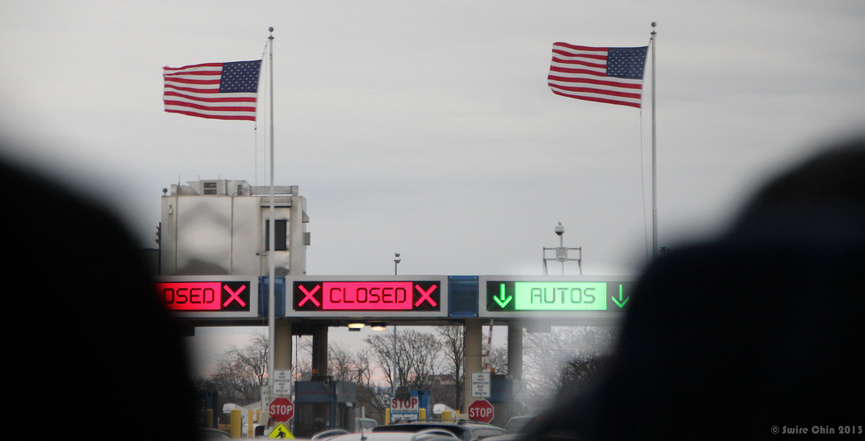The U.S. border closing didn’t just happen. It was a work of art.
On Monday, Justin Trudeau announced the border would close to everyone but the U.S. Reporters instantly barked, “Why not them, too, with their sloppy, ignorant COVID-19 policy?” Trudeau said, “It’s delicate, because of all the trade we do.” “OK,” said the press, “for the next hour: Just exempt the trade and ban tourists.”
There was another reason, clearly. Because Trump. He could take a fit, feel insulted and shut out everything, including the oranges and avocadoes. That would be catastrophic. Trudeau kept inanely repeating how delicate it all is while adding enigmatically that they were still rethinking it, not just daily but hourly. Trust us, he seemed to be saying under the verbiage. We have a plan.
The plan was: make Trump think that closing the border was his idea. Please, please Br’er Trump, do anything but don’t throw me into the briar patch. It was brilliant! Usually those don’t work but you admire them anyway, like a hockey pass that didn’t quite click. This one clicked.
Tuesday Chrystia Freeland talked to Pence. Wednesday morning Trudeau and Trump spoke. Maybe Justin said, “did you just suggest closing the border except for trade? That’s sheer genius, Donald!” Trump was so proud of himself that he tweeted it out before the deal was finalized. Maybe that was the plan too.
Honing strategies to get around Trump may have been the best thing to emerge from years of arduously renegotiating NAFTA. There were smallish improvements but this week was the big payoff. When you’re a little country dealing with a colossus led by a dolt, you’d better be nimble and smart.
In 1956, after the Suez invasion left Israel occupying tracts of Egypt, our Lester Pearson worked at the UN to create the first UN peace force. It won him the Nobel Peace Prize. It wasn’t perfect: all the UN troops were on Egypt’s soil, not Israel’s; and since then UN troops have often been more a menace than a blessing. But this week was Canada’s shiniest diplomatic gambit since then. I hope they’re drinking to it at the Pearson building.
Listening to the scientists. Sounds like a good idea, though not totally lucid. Why? Science itself is largely a process of correcting earlier science. You stand on their shoulders to see what they missed. That goes for breakthroughs like Galileo’s counter-intuitive notion that objects in motion keep going until something stops them, they don’t slow down on their own. Or Darwin’s idea that evolution happens via “accidental selection,” not purposeful adaptation.
Anyway, with COVID-19, it’s more about listening to the experts, especially public health officials, who apply some science to a lot of experience. They’re a different set. I watched Alberta’s Deena Hinshaw do a briefing. Leaning off on the side was a guy in a suit, just listening, leaving it to her. That can’t be Jason Kenney, I thought. But it was. When he speaks now, he seems to have taken in a lot and is applying it. Imagine what he’d do if that became his full-time M.O.
Even Doug Ford. When he declared an emergency in Ontario there were no vacuous phrases (Ontario is open for business, downtown leftists). He seemed to be actually trying to think about what he was saying and understand what he was doing. It doesn’t come easy; he’s no Jason Kenney. He kept reverting to a few simple terms given to him, perhaps, by the experts. But I’m not sure Kathleen Wynne would’ve arrived at a much different place any sooner. Good job, Doug.
It made me think about his attacks on “discovery math,” which aims to help kids think through math issues. Doug prefers the old days, when you memorized times tables. He says it would jack up those irritating low scores on math tests.
Tests aside, discovery and understanding are skills we’ll all need — leaders and citizens — if we’re to survive bewildering challenges like climate change and COVID-19. Memorizing some tables won’t really cut it. As for raising the scores, you could always look up those times tables. Or ask me. I still remember them.
Rick Salutin writes about current affairs and politics. This column was first published in the Toronto Star.
Image: Can Pac Swire/Flickr



